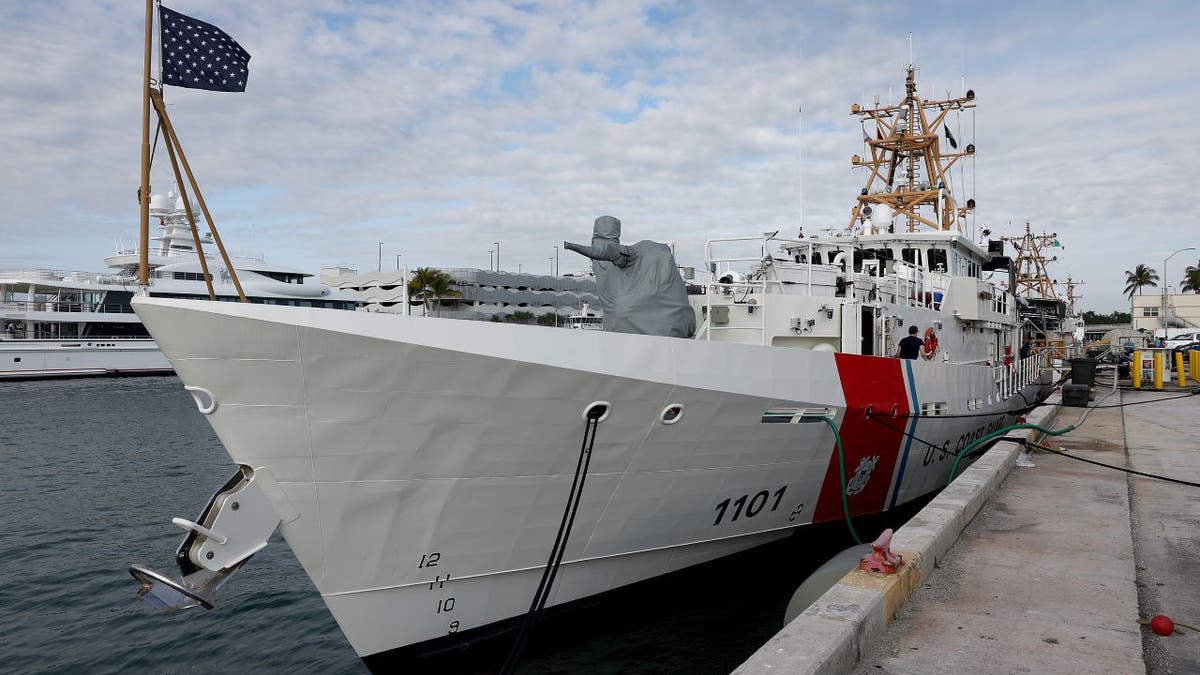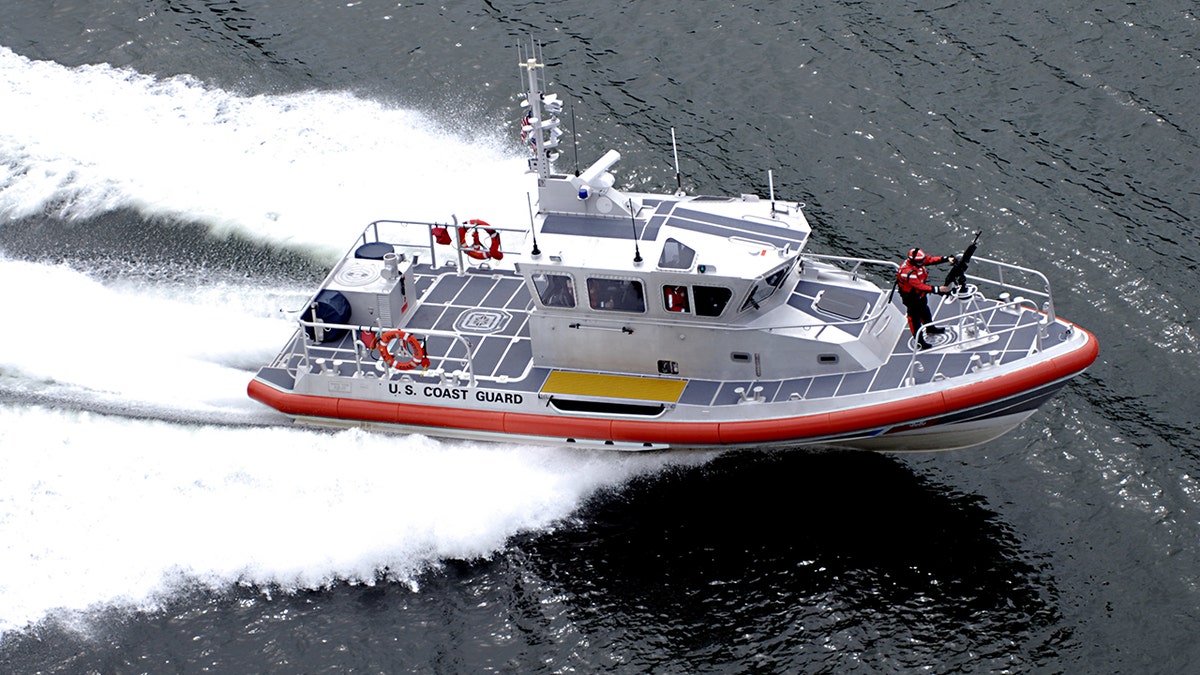Coast Guard spots migrants drifting along Florida Keys
Fox News’ Bryan Llenas reports on the U.S. Coast Guard finding nearly 8,000 Haitian and Cuban migrants coming to Florida through dangerous makeshift boats in the last four months.
Coast Guard crews in the Florida Straits have daily encounters with makeshift rafts carrying people desperate to reach the U.S., a voyage that can often end in tragedy.
"We see these people so desperate — we come across these folks from Haiti who have likely paid smugglers for transportation, hoping to get to the United States… They have nothing to lose. When they leave, I think they understand the risks of making this trip," Cmdr. Brooke Millard, commanding officer of United States Coast Guard Cutter (USCGC) Bear, told The Virginian-Pilot.
Millard's comment comes as her crew patrols the Florida Straits, where they make daily encounters with dozens of migrants crammed onto unsafe rafts attempting to make their way to the U.S. to start a new life. One such encounter in June ended in tragedy, when a vessel carrying 15 migrants from the Bahamas had an unconscious person aboard who Coast Guard members were unable to revive, according to The Virginian-Pilot report.

Members of the Coast Guard intercept a boat carrying Cuban migrants. (U.S. Coast Guard)
The Coast Guard is responsible for enforcing immigration laws at sea, with migrants who get intercepted by its members typically being repatriated back to their home countries. Fiscal Year 2023 is on pace to break last year's number of 12,000 Haitian and Cuban migrants intercepted at sea, so far recording 11,900 since Oct. 1.
Intercepted migrants are housed on the ship's flight deck in tents, and there can often be more than 100 migrants aboard at the same time. The crew, which is often outnumbered by the migrants, is responsible for providing them with food and medical care while processing their cases.
"It is a humanitarian mission," Millard said. "We take a lot of pride in having them aboard, getting them safe and sound on the cutter. It gives us satisfaction to take them out of that scary situation, even though we know they probably will be going back, and it might not be what they want or where they want to be. But at least we spared them a potential death at sea."
"It is really an all hands on deck evolution. There are folks from every department — cooks bringing up meals, our medical personnel doing what they do, and watch standers from engineering to the operations deck," added Lt. Cmdr. Jason Lassiter, the operations officer for USCGC Bear.

United States Coast Guard crewmembers work on a cutter at the Coast Guard Sector Miami base. (Photo by Joe Raedle/Getty Images)
TEXAS OFFICIALS RESCUE OVER 20 MIGRANTS FROM CROSS-BORDER TRAIN SMUGGLING OPERATION
Only a small percentage of the intercepted migrants will legally be allowed to enter the U.S., typically asylum seekers who can establish a legitimate fear of persecution or torture in their home country. According to Millard, the Coast Guard crew is generally happy for those that find out they get a shot at a new life.
"The government decides if they should not go back to Haiti because they will probably get killed as a political prisoner if they go back. So occasionally, we have one or two folks who eventually get to become a U.S. citizen — it’s a very slim chance, like maybe 1% of 1%. But when that happens, our crew is so excited for that individual — everyone claps as they walk out," Millard said.
Ensign Michael Pinto, who is fresh out of the Coast Guard Academy and on his first operational mission, said witnessing the migrants make the dangerous journey is "a hard sight to see."

US Coast Guard boat. (Francis Dean/Corbis via Getty Images)
"But in the end, these vessels are not seaworthy and we are helping them in the long run, because most of them are not fit to sail and won’t make it… It is an overwhelming sensation, diverting to help a vessel in distress, being there and being a light for them was an incredible feeling," Pinto said.
The journeys often end in tragedy, with the Coast Guard recording 18 deaths for migrants at sea so far this fiscal year.
Ensign Turner Linafelter, who is also on his operational mission, said the crew has been taught to have compassion for those they intercept.
"Captain talked to us about what it means to be American, what a privilege it is," Linafelter said. "These people we are interdicting, they just want a better life."











































